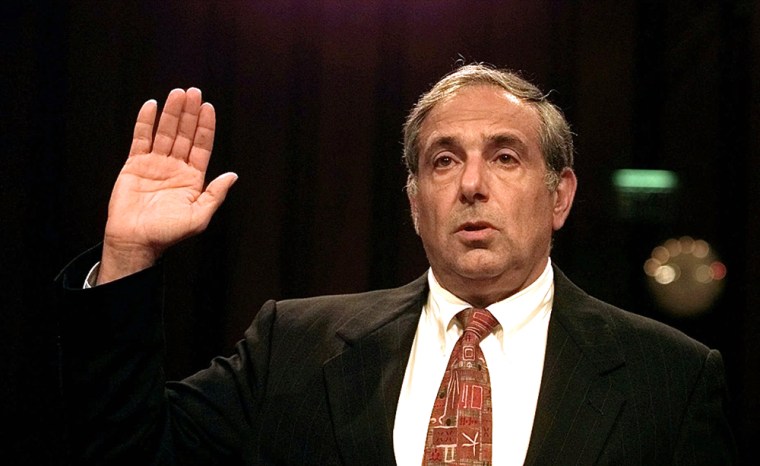President Bush’s pick to head the Consumer Product Safety Commission withdrew his nomination Wednesday amid strong opposition from some Senate Democrats because of his career as a manufacturers’ lobbyist.
The White House said it was reluctantly accepting the decision by Michael Baroody after “some members in the Senate rushed to judgment.”
Baroody is a lobbyist for the National Association of Manufacturers. His critics on Capitol Hill said he would not provide the leadership the agency needed in order to protect consumers.
Democrats also had raised questions about a $150,000 payment that Baroody would have received from the manufacturers’ lobbying group when he left.
The White House took issue with the critics, who included Democratic presidential candidate Sen. Barack Obama. Baroody had served in the Labor Department, where he was assistant secretary of policy during the Reagan administration.
“The president selected Mr. Baroody to serve in this position because of his strong commitment to protecting American consumers, his impressive leadership record and extensive public service,” the White House said in a statement. “We are disappointed he will not have the opportunity to strengthen the CPSC’s ability to protect American consumers.”
The White House said “it became evident to Mr. Baroody that he would not be confirmed.” The statement added that the process will begin immediately to find “another qualified and committed leader to serve in this important position.”
A hearing before a Senate panel on Baroody’s nomination had been scheduled for Thursday. Democratic Sens. Bill Nelson of Florida and Richard Durbin of Illinois wrote Bush last week saying the nomination should be withdrawn. After Baroody’s decision, Sen. John Kerry, D-Mass., said, “We won’t allow them to put a fox in charge of guarding the henhouse.”
Nelson said Baroody’s “ties to the industries he would have had to regulate were just too strong, creating at least the appearance of a conflict of interest.”
Obama said Baroody’s nomination highlighted the need to slow a revolving door that creates conflicts of interest between government officials and the industries they are supposed to be overseeing.
The manufacturers’ association president, John Engler, said Baroody was the victim of an “unprincipled smear campaign ... aided and abetted by unethical release of his financial records.”
“Watching this abuse of process, apparently without consequence for the wrongdoers, makes me wonder why any qualified citizen would submit to run today’s Senate gauntlet,” Engler said in a statement.
A $150,000 payment Engler’s group would have given Baroody when he left for government was arranged with the group’s senior managers in an agreement in January 2006, long before Baroody was considered for the federal job.
But a change was made to the agreement early this year when he was under consideration. Nelson, Durbin and Obama asked the president to provide details on the payment.
The change called for Baroody to continue to receive employee medical and pension benefits while he was waiting to be nominated, association spokesman Hank Cox said. Under the agreement, the $150,000 would be reduced by the amount of the employee contribution to the benefits, Cox said.
In addition, Senate Democrats made clear that they would raise questions about how Baroody intended to deal with potential conflicts of interest at the agency, which has been at odds with Baroody’s employer on a variety of issues.
The three-member commission has been working without a chairman since Hal Stratton left in July 2006. Because of that prolonged vacancy, the two-member panel has been unable to vote on new federal rules or new civil penalties since January of this year. Under federal law, CPSC can operate with two commissioners for just six months.
